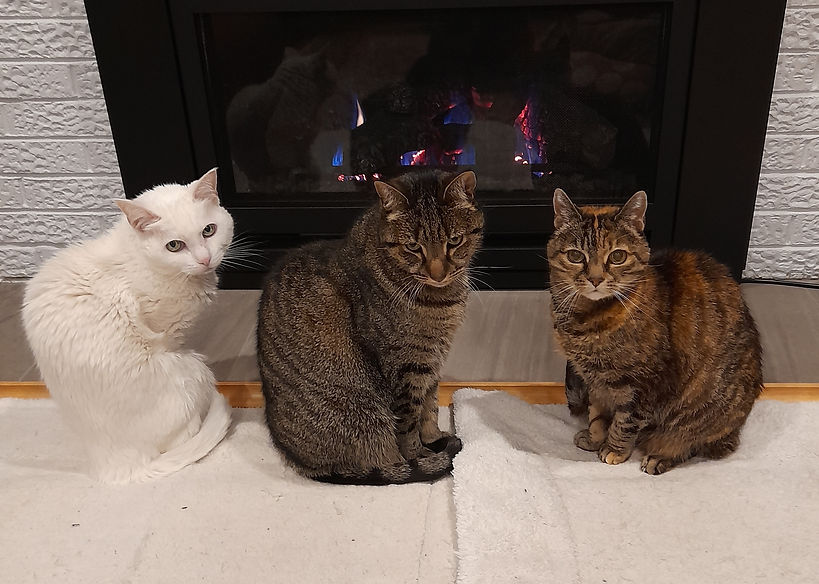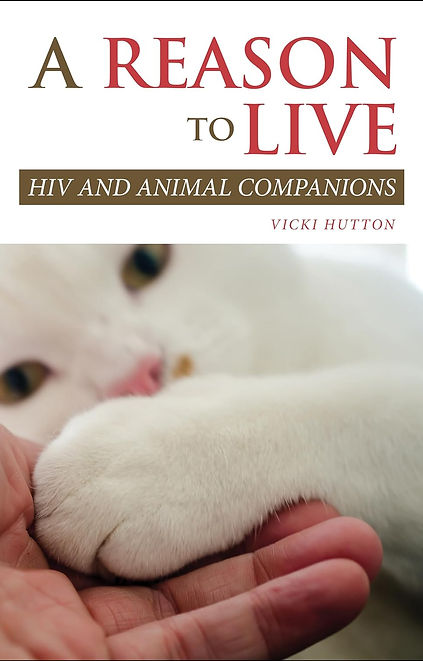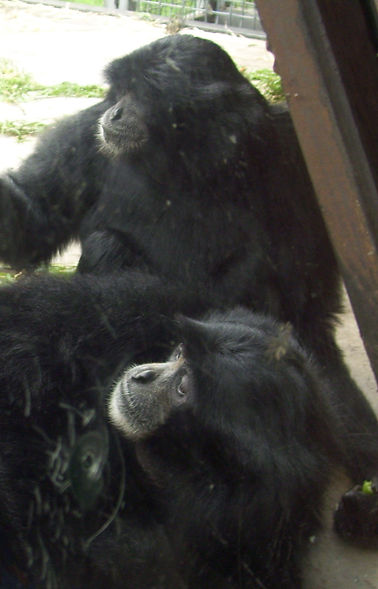
PUBLICATIONS


Recognising and Responding to Animal Emotion in a Shared World
How is it that depending on the setting, the same cat can be perceived as a homeless annoyance, a potential research subject or a thinking and feeling family member? The answer is bound up in our perception of non-human animals’ capacity to experience emotions, and this book draws on contemporary evidence-based research, observations, interviews and anecdotal case scenarios to explore the growing knowledge base around animal emotion. Acknowledging that animals can experience feelings directly affects the way that they are perceived and treated in many settings, and the author explores the implications when humans apply – or ignore – this knowledge selectively between species and within species.
This book will be fascinating reading for anyone interested in learning more about the animals with whom we share this planet. For some readers, it will validate the reciprocal emotional bond they feel for living creatures. For others, it will raise questions about the moral treatment of sentient non-human beings, breaking down the human protective barrier of cognitive dissonance and activating a cycle of change.
A Reason to Live: HIV and Animal Companions
A Reason to Live explores the human-animal relationship through the narratives of eleven people living with HIV and their animal companions. The narratives, based on a series of interviews with HIV-positive individuals and their animal companions in Australia, span the entirety of the HIV epidemic, from public awareness and discrimination in the 1980s and 1990s to survival and hope in the twenty-first century. Each narrative is explored within the context of theory (for example, attachment theory, the "biophilia hypothesis," neurochemical and neurophysiological effects, laughter, play, death anxiety, and stigma) in order to understand the unique bond between human and animal during an "epidemic of stigma." A consistent theme is that these animals provided their human companions with "a reason to live" throughout the epidemic. Long-term survivors describe past animal companions who intuitively understood their needs and offered unconditional love and support during this turbulent period. More recently diagnosed HIV-positive narrators describe animal companions within the context of hope and the wellness narrative of living and aging with HIV in the twenty-first century. Bringing together these narratives offers insight into one aspect of the multifaceted HIV epidemic when human turned against human, and helps explain why it was frequently left to the animals to support their human companions. Importantly, it recognizes the enduring bond between human and animal within the context of theory and narrative, thus creating a cultural memory in a way that has never been done before.


Other Publications
Books and Book Chapters
Hutton, V.E. (2024). Recognising and responding to animal emotion in a shared world. Taylor and Francis.
Carter, M.A., Hutton, V., Udah, H., & Francis, A. (2022). COVID-19 and the changing Higher Education landscape: The impact on academics and their wellbeing. In A.P. Francis and M.A. Carter (eds). Mental Health and Higher Education in Australia. Springer Nature Singapore Pty. Ltd.
Hutton, V.E., & Sisko, S. (2021). Multicultural Responsiveness in Counselling and Psychology. Palgrave Macmillan.
Hutton, V.E. (2018). A reason to live: HIV and companion animals. Purdue University Press.
Misajon, R., Hutton, V.E., & Bluic, A-M (2016). Volunteering and Civic Participation in the Vietnamese-Australian Community. In E. Healy, D. Arunachalam, & T. Mizukami (eds.), Creating social cohesion in an interdependent world: Experiences of Australia and Japan (pp. 145-161). Palgrave Macmillan Publishers.
Peer-reviewed journal articles
Hutton, V.E. (2021). Gendered experiences of living with HIV in Australia. Sexes, 2(3), 244-255. https://doi.org/10.3390/sexes2030020
Waller, A., Paganini, C., Andrews, K. & Hutton, V. (2021). Trust and a sense of safety: The benefits of professionally-led support groups in eating disorders. European Journal of Psychotherapy and Counselling, 23(4). https://doi.org/10.1080/13642537.2021.2000462
Hutton, V.E. (2020). Getting it right: Why personal pronouns matter. In Andrews, K., Papps, F.A., Mancini, V., Clarkson, L., Nicholson Perry, K., Senior, G., & Brymer, E. (Eds.), Innovations in a Changing World (pp. 231-242). Australian College of Applied Psychology.
Hutton, V.E. (2019). Animal euthanasia – empathic care or empathic distress? Veterinary Record 185(15).
Hutton, V.E., & Hutton, R.E. (2019). ‘Humans say they love us…’ Normalizing the beneficence of animal ownership. The Journal of Popular Culture, 52(5), 1163-1182.
Lavorgna, B.F., & Hutton, V.E. (2018). Grief severity: A comparison between human and companion animal grief. Death Studies, 43(8):521-526. DOI: 10.1080/07481187.2018.1491485
O’Connor, A.S., & Hutton, V.E. (2017). Improving entrepreneurial research methodology: When research design fails. Journal of Student Research, 6(2), 61-65.
Hutton, V.E. (2016). “What am I going to do without him?” – Death anxiety, projection and the human-animal relationship. The Psychoanalytic Review, 103(5), 699-718.
Hutton, V.E. (2016). Older adults living with HIV: A valuable resource? Ageing & Society, 38(3), 476-496. Doi:10.1017/So144686X16001070
Hutton, V.E. (2015). Social Provisions of the Human–Animal Relationship amongst 30 People Living with HIV in Australia. Anthrozoos 28(2), 199-214
.
Hutton, V.E. (2014). Companion animals and wellbeing when living with HIV. Anthrozoos 27(3), 407-421.
Hutton, V.E., Misajon, R., & Collins, F.E. (2013). Subjective wellbeing and ‘felt’ stigma when living with HIV. Quality of Life Research 22(1), 65-73.
Other Media and Presentations
INTERVIEWS
Why Animal Emotions Matter In Our Shared Worlds
Psychology Today, January 2024
Interview with Marc Bekoff, Ph.D., professor emeritus of ecology and evolutionary biology. The following conversation will be of interest to a wide-ranging audience including biologists, psychologists, ethicists, veterinarians, lawyers, and non-academics who are interested in why we must pay close attention to what other animals are telling us and asking of us as they try to adapt to an increasingly human-dominated world.
A Reason to Live – Q&A with Author Vicki Hutton
Purdue, June 2019
In an interview with Vicki Hutton, the author of A Reason to Live: HIV and Animal Companions, we discuss the new book and relevant subjects, including the public perception of HIV/AIDS and the universality of the human-animal bond. A Reason to Live is the newest book in the popular New Directions in the Human-Animal Bond book series, edited by Dr. Alan M. Beck and Dr. Marguerite O’Haire.
NEWSLETTERS
Animals and Humans - The Emotions We Share
Meaningful Ageing Australia, 2022
The debate is over – animals do have feelings and they can experience emotions and pain. Different animals may not feel things in exactly the same way that humans do, but scientists in neuroscience, biology and ethology have provided mounting evidence that humans are not unique in their emotional lives.
The Connection We Share: Companion Animals and Spirituality
Meaningful Ageing Australia, 2019
Throughout history and across cultures animals have co-habited with humans. Archaeological records show animals featured in art, architecture, folklore and the religious and spiritual rites of many ancient traditions (Wilmer, 2019). Animal symbols and metaphors have appeared in religious practices across historical eras and geographical locations, and animal guardian spirits were often called upon to mediate healing and wellbeing (Serpell, 2006). Given this historical legacy and the strong affection that can bind human to animal, it is not surprising that some people feel a spiritual dimension to the bond they share with their companion animal.
CONFERENCE PRESENTATIONS
Hutton, V.E. (2019). Getting it right: Why personal pronouns matter. 2019 ACAP Conference, Melbourne
Hutton, V.E. (November 2018). Animals on the frontlines – A cultural memory of companion animals and the HIV-epidemic in Australia. Australian Lesbian and Gay Archives Queer Legacies, New Solidarities Conference, Melbourne
Hutton, V.E., & Sisko, S. (November 2018). Innovative approaches to cultural competence in mental health education. 2018 Tertiary Education Quality and Standards Agency Conference and the Higher Education Quality Forum, Melbourne
Hutton, V.E. (July 2018) Lingering perceptions of non-human animals as property. International Society for Anthrozoology Conference, Sydney
Hutton, V.E., & Misajon, R. (November, 2012). Subjective wellbeing and stigma amongst people with HIV. Presentation at the XI International Society for Quality of Life Studies, Venice, Italy.
Misajon, R., Hutton, V.E., Pallant, J., & Richardson, J. (November, 2012). Rasch analysis and the Personal Wellbeing Index across two different populations. Presentation at the XI International Society for Quality of Life Studies, Venice, Italy.
Hutton, V.E. (October, 2012). Subjective wellbeing and stigma. Poster presented at the Australasian HIV/AIDS conference 2012, Melbourne, Australia.
Hutton, V.E., & Misajon, R. (October, 2012). Using the Personal Wellbeing Index (PWI) in a population living with HIV. Poster presented at the International Society for Quality of Life Research 19th annual conference, Budapest.
Hutton, V.E. (July 2011). ‘She’s part of me…’: The ameliorating presence of pets when living with HIV. Paper presented at the 4th Biennial Australian Animals Group Conference, Brisbane, Australia.
Hutton, V.E. (October 2010). Positive with pets: The positive impact of pet ownership when living with HIV. Poster presented at the Australasian HIV/AIDS conference 2012, Sydney, Australia.
Hutton, V.E. (July 2010). Positive with pets: The positive impact of pet ownership when living with HIV. Paper presented at the International Congress of Applied Psychology, Melbourne, Australia.
Hutton, V.E. (July 2009). Old friends: The human-animal bond. Paper presented at the International Minding Animals Conference, Newcastle, Australia.


